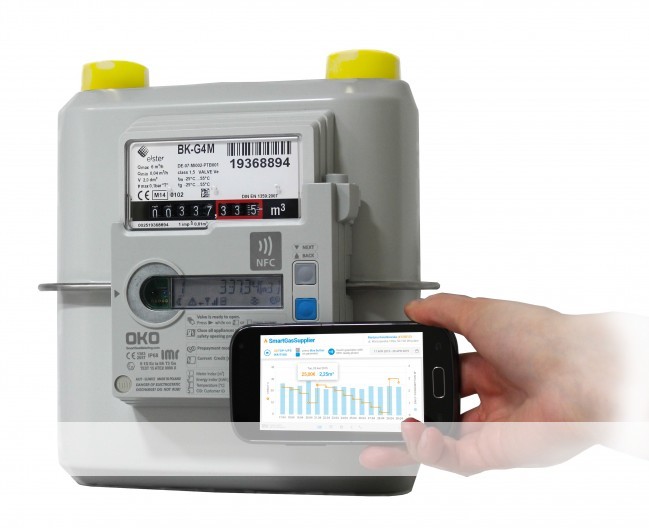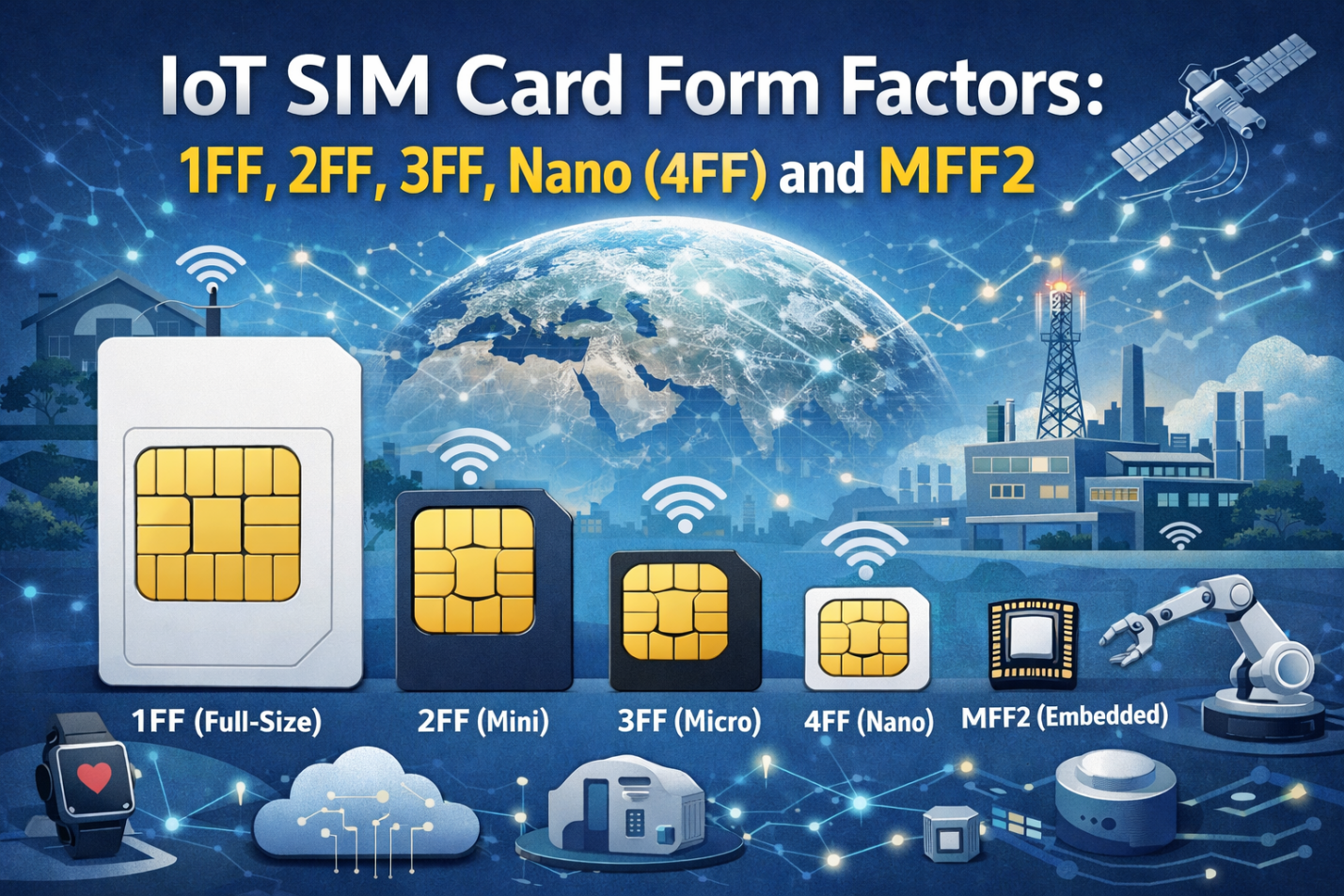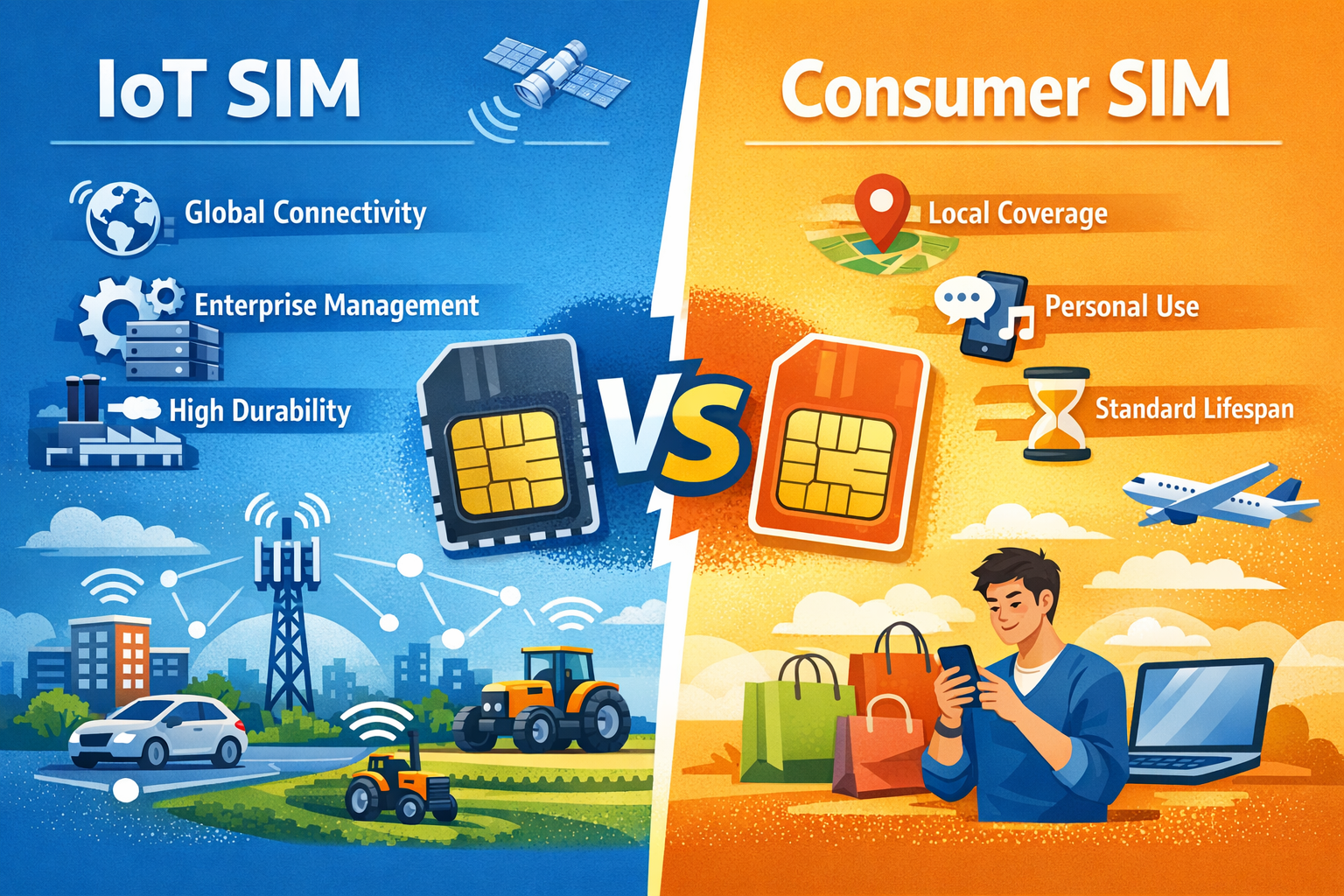Introduction
The global energy industry is undergoing a massive transformation, driven by the rapid adoption of smart technologies. Among these, smart gas metering has become one of the most important solutions for utilities and governments seeking to improve energy efficiency, reduce operational costs, and deliver better services to consumers. At the heart of this transformation lies IoT SIM card connectivity, which enables gas meters to transmit real-time consumption data via GPRS/2G, 3G, or 4G networks.
For many regions, especially emerging markets, IoT SIM cards with GPRS support provide an affordable and scalable way to digitize utility infrastructure. Instead of relying on manual meter readings, smart gas meters equipped with IoT SIM cards allow utilities to remotely monitor, bill accurately, and detect anomalies instantly. This combination of automation, connectivity, and data intelligence results in both efficiency improvements and cost savings.
This article explores how IoT SIM cards enable smart gas metering, the benefits they deliver, challenges in deployment, and why this technology represents the future of sustainable utility management.
What is Smart Gas Metering?
Smart gas metering is the process of integrating digital technology and connectivity into traditional gas meters. Unlike conventional meters that require manual reading, smart meters automatically record consumption data and send it to utility providers through wireless networks.
Key features of smart gas metering:
- Real-time monitoring: Gas consumption can be tracked live.
- Remote data transmission: No need for field staff to visit each household.
- Accurate billing: Eliminates errors associated with manual readings.
- Leak detection: Alerts utility providers when anomalies are detected.
- Analytics: Provides valuable data insights into usage patterns.
This transformation is powered by IoT SIM cards, which connect gas meters to mobile networks. Through technologies like GPRS (2G), smart meters transmit small packets of data at regular intervals, making it cost-effective for large-scale deployments.
The Role of IoT SIM Cards in Smart Gas Metering
An IoT SIM card is specifically designed to connect machines, sensors, and smart devices to mobile networks. Unlike consumer SIM cards, IoT SIM cards are optimized for:
- Low data consumption – Perfect for smart gas meters that send small amounts of data.
- Long-term reliability – Designed to remain operational for many years without replacement.
- Global roaming capabilities – Ensures connectivity even in regions with limited local infrastructure.
- Flexible data plans – Scalable from a few MB per month to larger packages for advanced applications.
For smart gas metering, the most widely used technology is GPRS/2G IoT SIM cards. Even though 4G and 5G networks dominate smartphones, GPRS remains a reliable choice for IoT because:
- It is low-cost.
- It requires minimal bandwidth.
- It is available in most developing markets.
By using IoT SIM cards with GPRS, utilities can ensure continuous and affordable connectivity for thousands of meters without straining budgets.
Benefits of Smart Gas Metering with IoT SIM Cards
Smart gas metering, when powered by IoT SIM cards, is not just a technical upgrade—it is a strategic shift in how utilities manage resources, reduce costs, and deliver value to consumers. By embedding reliable connectivity into every meter, gas companies gain real-time insights, operational flexibility, and stronger control over their infrastructure. The advantages are wide-ranging, impacting everything from billing accuracy to sustainability goals.
1. Enhanced Operational Efficiency
Traditional metering relies heavily on manual labor: technicians must travel door-to-door, record data by hand, and feed it back into central systems. This process is time-consuming, costly, and error-prone. With IoT SIM-enabled smart meters:
- Consumption data is transmitted automatically over GPRS or other mobile networks.
- Utility staff can monitor thousands of meters from a single platform.
- Field visits are reduced to exceptions such as repairs, not routine readings.
The result is a leaner, faster, and more efficient operation that frees up resources for higher-value projects.
2. Accurate and Transparent Billing
Billing errors undermine consumer trust and disrupt utility revenue streams. IoT SIM cards ensure that every unit of gas consumed is recorded and transmitted in real time, eliminating guesswork. Utilities can:
- Generate highly accurate bills.
- Reduce disputes and complaints.
- Offer usage dashboards so consumers can see exactly what they are paying for.
This creates a fairer, more transparent system that benefits both providers and end users.
3. Cost Savings for Utilities and Consumers
Smart metering delivers substantial financial advantages:
- For utilities: Savings come from reduced labor, lower vehicle fuel costs, fewer administrative tasks, and minimized losses due to underbilling or theft.
- For consumers: Transparency in consumption allows households to track usage, avoid waste, and lower monthly expenses.
Studies show that utilities adopting IoT SIM-enabled smart meters can achieve 20–50% reductions in operational costs within the first few years of deployment.
4. Safety and Risk Mitigation
Gas leaks are not only costly but also dangerous. Smart meters connected via IoT SIM cards are able to:
- Detect anomalies in consumption patterns.
- Send instant alerts to both consumers and utility providers.
- Reduce response times and prevent hazardous incidents.
This proactive monitoring improves public safety while protecting utility companies from liabilities and revenue losses.
5. Scalability and Flexibility
Whether a utility is rolling out 1,000 meters in a pilot program or expanding to 100,000+ meters in a nationwide deployment, IoT SIM cards provide unmatched scalability. With options like:
- Multi-network roaming SIMs for maximum coverage.
- Flexible data plans that match low-consumption use cases.
- Long-term reliability designed for devices expected to last 10+ years.
Utilities can expand smart metering initiatives without having to overhaul their connectivity infrastructure.
6. Data-Driven Insights for Smarter Planning
Continuous streams of accurate, real-time data open the door to advanced analytics. With IoT SIM-enabled smart meters, utilities can:
- Forecast demand more precisely.
- Identify high-usage zones and optimize supply.
- Use predictive analytics to anticipate infrastructure maintenance.
- Design customer-centric programs such as prepaid metering or energy-saving incentives.
This turns data into a strategic asset, giving utilities a competitive edge in both efficiency and customer satisfaction.
7. Environmental and Sustainability Benefits
Beyond operational and financial gains, smart gas metering contributes to sustainability goals:
- Less fuel is consumed for field operations, reducing the carbon footprint.
- Real-time monitoring helps identify and eliminate leaks, preventing unnecessary waste.
- Consumers become more conscious of their energy use, contributing to responsible consumption.
As governments worldwide push for greener utility management, IoT SIM-enabled gas meters align perfectly with sustainability initiatives.
Market Trends: Why IoT SIM Cards + Smart Gas Meters Are Growing
According to industry research, the global smart gas metering market is projected to grow at a CAGR of over 10% in the next decade. Several factors are driving this growth:
- Urbanization and population growth → More demand for energy.
- Government regulations → Push for energy efficiency and transparency.
- Digital transformation in utilities → Move away from manual systems.
- Emerging market adoption → Affordable GPRS SIMs make IoT deployments viable in Africa, Asia, and Latin America.
For many countries in Africa and Asia, 2G/GPRS remains the backbone of IoT connectivity. This ensures that smart metering can be deployed even in regions where 4G or 5G infrastructure is limited.
Technical Overview: How IoT SIM Cards Enable Smart Gas Metering
- Meter Installation
Smart gas meters are installed at consumer premises. Each meter is fitted with an IoT SIM card. - Data Transmission via GPRS
The IoT SIM transmits consumption data through 2G/GPRS networks to a central server. - Utility Management Platform
Utilities receive this data in real time and process it through advanced analytics platforms. - Consumer Dashboard
End-users can access their data through mobile apps or web portals. - Billing and Alerts
The system automatically generates bills and sends notifications to consumers or utility managers.
Case Studies: Smart Gas Metering in Action
Case Study 1: Smart Metering in Africa
A utility provider in East Africa deployed 20,000 smart gas meters connected via IoT SIM cards with GPRS. Results included:
- 98% billing accuracy.
- 40% reduction in operational costs.
- Faster revenue collection cycles.
Case Study 2: Utility Transformation in Asia
In Southeast Asia, a city utility used IoT SIM-enabled meters to replace manual billing systems. Benefits included:
- Reduced customer complaints by 60%.
- Improved leak detection, preventing accidents.
- Enhanced transparency in billing.
These examples demonstrate that IoT SIM cards are practical, cost-effective, and scalable solutions for utilities worldwide.
Cost-Saving Analysis
When comparing traditional vs. smart gas metering, the savings are substantial.
- Labor Costs: Manual meter reading can account for up to 40% of operational expenses. IoT SIM-powered meters cut this almost entirely.
- Fuel and Transportation: Reduced need for field visits lowers carbon footprint and transportation costs.
- Revenue Assurance: Accurate billing prevents revenue leakage due to errors or fraud.
- Infrastructure Costs: GPRS IoT SIMs are affordable and require minimal investment compared to building new communication networks.
Overall, utilities can expect 20–50% cost savings by shifting to IoT-enabled smart metering systems.
The Future of Smart Gas Metering
As IoT, AI, and cloud platforms advance, smart gas metering will become more sophisticated. Future trends include:
- Integration with smart grids.
- Predictive analytics for demand forecasting.
- Use of eSIM technology for even more flexible connectivity.
- Expansion in emerging markets, driven by cost-effective GPRS IoT SIM cards.
The convergence of these technologies will enable utilities to not only measure consumption but also predict and optimize usage in real time.
Conclusion: Partner with ZhongYi IoT for Reliable Smart Metering Solutions
Smart gas metering powered by IoT SIM cards is more than a technology upgrade—it is a strategic investment that delivers efficiency, safety, and cost savings for utilities and consumers alike. With affordable GPRS IoT SIM cards, even emerging markets can deploy large-scale smart metering systems effectively.
At ZhongYi IoT, we specialize in providing global IoT SIM card solutions tailored for utilities, enterprises, and governments. Our connectivity solutions are:
- Reliable: Multi-network and global coverage.
- Cost-Effective: Flexible data plans and bulk purchase options.
- Future-Proof: Support for GPRS, 3G, 4G, NB-IoT, and LTE-M.
- Scalable: From small pilots to nationwide deployments.
👉 If you are planning to deploy a smart gas metering system or other IoT projects, ZhongYi IoT is your trusted partner.
Contact us today to learn how our IoT SIM solutions can power your success.



